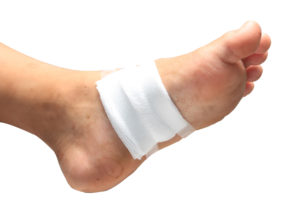Cellulitis is a common, but potentially serious infection of the skin and the soft tissues underneath that occurs when bacteria enters the body through a crack or break in the skin. Cellulitis can also develop as a result of an infection typically after surgery or having untreated injuries such as a puncture would, cut, scrape or burn can also lead to the development of cellulitis.
Cellulitis most frequently occurs on the legs, but it can present on other parts of the body, including the arms or face. Cellulitis usually develops on one side of the body.
The skin of those with cellulitis is often skin swollen and red and is typically painful and warm to the touch. Other symptoms of cellulitis can include:
- Red spots
- Red streaking
- Blisters
- Skin dimpling
- Fever
- Infected area tends to expand
- Leaking of yellow, clear fluid or pus
There are several factors that place someone at an increased risk of developing cellulitis, such as diabetes, obesity, liver disease, circulatory issues, or having a weakened immune system. Certain skin conditions including eczema, psoriasis, athlete’s foot or shingles can provide an entry point for bacteria to enter the body.
If left untreated, an infection can spread to a person’s lymph nodes and bloodstream and rapidly become life-threatening. It is important to see your doctor immediately or seek emergency care if you experience any signs of cellulitis to prevent the condition spreading throughout your body.
Your doctor can recommend a care plan that may include pain relievers to treat the symptoms and possibly either oral or intramuscular antibiotics, depending on the severity of the condition, to treat the infection. In rare cases, surgery may be required. Other tips to treat cellulitis include resting and elevating the infected area.
The best advice to prevent cellulitis includes taking proper safety precautions, including:
- Washing your wound daily with soap and water
- Applying a protective cream or ointment to surface wounds
- Covering your wound with a bandage.
- Moisturizing your skin regularly
- Watching for signs of infection
If you believe you have cellulitis, make an appointment with your doctor immediately. If you do not have a doctor, you can make an appointment with a qualified physician at Flushing Hospital Medical Center by calling 718-670-5486.
All content of this newsletter is intended for general information purposes only and is not intended or implied to be a substitute for professional medical advice, diagnosis or treatment. Please consult a medical professional before adopting any of the suggestions on this page. You must never disregard professional medical advice or delay seeking medical treatment based upon any content of this newsletter. PROMPTLY CONSULT YOUR PHYSICIAN OR CALL 911 IF YOU BELIEVE YOU HAVE A MEDICAL EMERGENCY.

